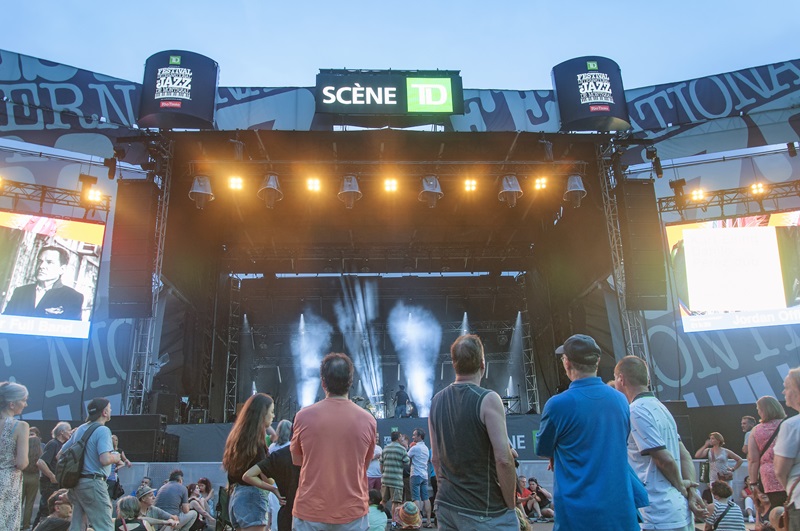Defence costs: ‘Equitable contribution’ applies to insurers, not insureds

An insurance company can only claim equitable contribution against another insurer, not against an insured, Ontario’s Court of Appeal ruled Aug.27.
The legal doctrine of ‘equitable contribution’ between insurers applies when two insurance policies are ‘irreconcilable,’ meaning they both cover the same loss, and neither is clearly in excess to the other.
“When these circumstances occur, both insurers will be required to equally contribute to the insured’s defence and indemnification,” as the concept is explained on the website of B.C. law firm Richards Buell Sutton.
But in the commercial insurance claim, Live Nation Ontario Concerts GP, Inc. v. Aviva Insurance Company of Canada, one of the two insurers with policies covering the same thing, Starr Indemnity & Liability Company, was not called in as a party to the lawsuit. And so, Aviva Canada asked the court to find the insureds — Live Nation and Ontario Place — responsible for 50% of the defence costs.
“If equitable contribution is available, that remedy should have been sought, and may presumably still be sought, against Starr, but not against the respondents [Live Nation and Ontario Place Corporation,] who are not an insurer,” the Court of Appeal found. “Equitable contribution can only be sought from a concurrent insurer, not from the insured.”
However, despite finding Aviva Canada is 100% on the hook for Live Nation and Ontario Place’s defence costs in a personal injury negligence lawsuit, the Appeal Court ruled Aviva does not have to pay defence costs for the parts of the claim that its policy does not cover.
Background
Tara Nimmo attended a concert promoted by Live Nation at the Budweiser Stage in Toronto in September 2016. Ontario Place and Live Nation contracted NorthWest under a service agreement to provide “crowd management services” for all shows at the Budweiser Stage.
Aviva insured the service agreement under a CGL policy, covering “bodily injury and property damage liability” resulting from the failure of NorthWest’s services “to meet the level of performance, quality, fitness or durability warranted or represented” by NorthWest.
Live Nation and Ontario Place were listed as ‘additional insureds’ on Aviva’s policy.
On the night of the Sept. 1 concert, Nimmo “was allegedly injured when security personnel removed an unruly patron,” the Appeal Court ruling states. “The allegations against NorthWest were that it was negligent in its provision of security services at the concert and that Ms. Nimmo was injured when NorthWest security personnel ejected ‘an inebriated and out of control patron in a careless and negligent manner.’”
Nimmo made two sets of negligence allegations against Live Nation, Ontario Place and NorthWest.
In one set of ‘security-related’ allegations, she claimed NorthWest was negligent in its providing security services at the concert. She also claimed Live Nation and Ontario Place “failed to properly train, supervise, and instruct their security personnel to deal properly with unruly patrons and were liable for NorthWest’s actions,” as the appellate court summarized the claim.
In an unrelated set of negligence allegations, Nimmo said Live Nation and Ontario Place weren’t compliant with the province’s liquor law regulations. She claimed Live Nation and Ontario Place served alcohol in excessive amounts and failed to take steps to provide safe premises.
None of these allegations have been proven in court.
In other news: Did digital kill the market share stars?
What the courts found
Live Nation and Ontario Place had an insurance policy with Starr that included CGL coverage for “bodily injury and property damage liability.” Under the Starr policy, Live Nation and Ontario Place had a self-insured retention of $1 million applicable to “each wrongful act” that had to be exhausted before Starr’s duty to defend and pay defence costs was triggered.
Both Aviva’s and Starr’s policies had ‘other insurance’ clauses limiting the insurers’ obligations to pay defence costs in certain circumstances, “if other valid and collectible insurance is available to the insured for a loss covered.”
In the lower court, a judge determined Aviva’s policy was the primary policy, since there was substantial overlap in the ‘security-related’ negligence allegations between the two policies. And since Starr was not a party to the lawsuit, Aviva should be on the hook for 100% of the defence costs.
Aviva appealed, noting its policy did not cover negligence for the liquor licence allegations. And since Starr was not a party to the case, Aviva tried to claim the insureds — Live Nation and Ontario Place — should be 50% on the hook for equitable contribution.
The Ontario Court of Appeal denied Aviva was entitled to argue equitable contribution from the insureds. It noted neither party to the lawsuit – neither Live Nation and Ontario Place, nor Aviva Canada — called in Starr as a party of the lawsuit.
The court found Aviva was still entitled to call Starr in as a party to the lawsuit and claim equitable contribution from the insurer.
However, the Appeal Court did agree with Aviva that the two sets of negligent claims didn’t overlap – and that the liquor licence-related allegations were not covered by Aviva’s policy.
So, while Aviva is 100% on the hook for the defence costs “for now,” the court ruled, once the lawsuit was over, and the defence costs were known, Aviva would not have to pay for the costs related to defending the liquor license allegations.
Feature image courtesy of iStock.com/Daniel Hanscom







